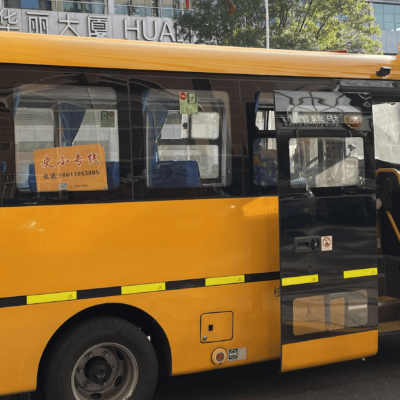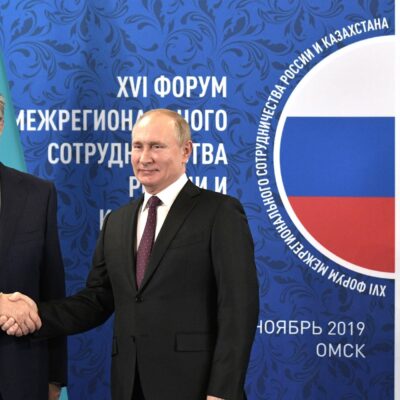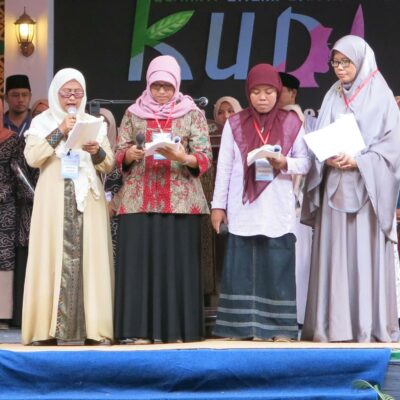The Taliban took over the Afghan capital Kabul in August 2021 and regained control of the entire country. The first time the Taliban ruled Afghanistan (1996-2001), they were virtually stepping into an absence of a legal and political order. However, this time the Taliban have taken over a two-decade-old political and legal order, the Islamic Republic of Afghanistan. What does the Taliban takeover mean for the country’s laws and legal institutions? What does it mean for the legal trajectory of Afghanistan?
Building on the ruins that the years of civil war and Taliban rule had left behind, the Republic was founded on a constitution (2004) that, by many standards, could be considered the most progressive constitution in the region. Within this progressive constitutional framework, two elected presidents and four elected parliaments enacted numerous laws. The Supreme Court, the country’s top court, was reestablished as the head of a formally independent judiciary. The Attorney General’s office was reestablished to formally introduce an element of due process in the criminal justice system. Law and political science faculties and Shari’ah faculties, two schools that would supply the justice sector personnel, started graduating people who would staff the growing justice sector. The surplus of law and Shari’ah graduates, the flow of aid to the formal justice sector, and the increase in demand (and need) for formal legal services led to the emergence of a nascent private legal market where a formally independent bar association licensed and regulated the private defence attorneys.
While the formal components of the Afghan legal system developed, the post-2001 legal system never managed to make enough progress in enabling rule-based politics, establishing rule of law, curbing corruption, gaining public trust, and meeting the needs of those involved in the justice sector. Elections were fraudulent, the culture of impunity deepened, corruption metastasized, and most people preferred the informal justice sector to the formal justice sector. Even before their military victory, the Taliban capitalised on the failure of the formal justice sector by setting up shadow courts that not only handed down harsh punishments but also resolved civil disputes, often faster and, in the views of some users, better than the government courts could.
The Taliban ramped up military operations against Afghan government forces soon after they made a 2020 deal with the United States in Doha, Qatar where they agreed not to attack US and NATO forces in exchange for a schedule for a complete withdrawal of foreign forces from Afghanistan. The deal also envisioned (in Parts 3 and 4), even if its text didn’t explicitly require it, that the Taliban would try negotiating a peace deal with the Afghan government. However, as the military withdrawal was underway, the intra-Afghan negotiations never managed to make progress. As a result, on August 15, 2021, even before the withdrawal of foreign troops was concluded, the Taliban completed a rapid, chaotic takeover of the country without any transitional plans in place.
A few weeks after Kabul fell to the Taliban, a spokesperson for the group announced that they had reinstated the Islamic Emirate as the political system of the country ending the post-2001 Republic; that Amir ul-Muminin, the Commander of Faithful, would be the head of the Afghan state; and a caretaker government, comprised exclusively of Taliban members, headed by a prime minister would run the affairs of the country.
The Islamic Emirate
The Emirate is a highly underspecified and undertheorised political system. The lack of interest in theorising and defining the Emirate is a function of the Taliban’s history. Since its inception, the Taliban has remained primarily focused on warfare—in the 1990s against the rival mujahedeen groups and then post-2001 with the US/NATO and the post-2001 Afghan government. Internally, the distribution of power within the group has always been a delicate balance that has proven difficult to institutionalise. Externally, the Taliban’s main supporters do not seem to demand a sophisticated argument in favor of the Emirate. To those willing to support the group, it seems to suffice that the Taliban are committed to making Shari’ah, as understood by the Taliban-affiliated Hanafi Ulema, the law of the land, and that the alternatives are not sufficiently Islamic.
More importantly, support for the Taliban has always been driven more by practical considerations than theoretical ones. Nationally, the Taliban have championed disarming the warlords, establishing law and order, curbing corruption, and ending the foreign occupation—all of which are widely popular. Locally, the Taliban have also been attuned to varied local politics in different parts of country coopting varied local grievances to generate support in different locales across the country. Poor governance, the divisive politics of the Republic and the abuses of the foreign forces also made the Taliban’s job much easier.
Taliban never formalised their preferred political system, the Islamic Emirate. During the first Emirate (1996-2001), a council of Ulema, i.e., religious scholars, gathered in Kabul to draft a constitution that would formalise the Islamic Emirate, however, the first Emirate never adopted the draft.
Long after they were ousted from power in 2005, the group’s leadership in exile reportedly endorsed the draft prepared by the Ulema council and released its text publicly. From a theoretical standpoint, the Taliban’s draft constitution is unimpressive. It reproduces almost verbatim a previous draft constitution prepared by the short-lived mujahedeen government. The mujahedeen draft constitution itself infused the frame of an older Afghan constitution, the country’s 1964 Constitution, the last Afghan constitution with broad legitimacy, with the Muslim Brotherhood and Jamaat-e-Islami style Islamist ideology popular among the mujahedeen leadership.
Unlike the 2004 Constitution which recognised a limited role for Shi’a jurisprudence, all three texts (the 1964 Constitution, the mujahedeen’s, and Taliban’s drafts), only recognised the authority of Hanafi school of Islamic jurisprudence within the legal and judicial sphere in Afghanistan. This is despite Afghanistan is home to a sizable population of Shi’a Muslims.
The Taliban’s draft diverged from the mujahedeen draft, and Islamist ideology, in one crucial aspect: The mujahedeen draft constitution envisioned a parliamentary form of government where the executive power is divided between a president and a prime minister and people elect members of parliament via general elections (Articles 8 and 46). The Taliban version rejected elections and vested power almost exclusively in the person of the Amir who would not only appoint the entire government and judiciary but also representatives from each province to a body that would assist in a limited form of legislation (Articles 46, 47, and 55). This limited form of legislation was meant to supplement the Hanafi jurisprudence of Islam which was deemed to be the supreme law of the land (Articles 5 and 6).
To the surprise of many, while reestablishing the Emirate in 2021, the Taliban did not adopt their draft constitution as the country’s constitution. In a meeting with the Chinese Ambassador to Afghanistan, in what appears to have been an informal comment, the Taliban’s caretaker minister of justice reportedly said that the Taliban had reinstated the 1964 Constitution as the country’s interim constitution albeit only to the extent that its provisions do not violate Shari’ah. The 1964 Constitution is an important milestone in Afghanistan’s constitutional history. It gave effect to four decades of intra-elite dialogue (since the country’s first written Constitution in 1923) about the structure and role of the Afghan state. However, the value of the Taliban’s acting caretaker minister’s statement is often exaggerated.
Practically, the Taliban are yet to reference or invoke the 1964 Constitution in their conduct. Normatively, the 1964 Constitution envisioned a constitutional monarchy with popular elections, whereas the Taliban have consistently rejected elections and maintained that the political system of the country will remain the Islamic Emirate. Since their return to power, important appointments, and decrees, in administrative, legislative, and judicial areas, have been issued by the authority of the Taliban’s elusive Amir. The 1964 Constitution formalised separation of power, popular legislature, and included a bill of rights as limits on the power of the state; whereas the Taliban have so far not shown any deference to separation of power, participatory governance (save for some low-level public liaison posts in Kabul), or the boundedness of the power of the state. The 1964 Constitution formalised a government of laws. The 1964 Constitution considered the state legislation to be the primary source of law in the country if it did not violate the basic principles of Islam and considered the Hanafi jurisprudence of Islam to be a supplementary source (Article 64(2)) whereas the Taliban maintain the reverse of this order.
Since their return to power, Taliban’s decision to elevate Hanafi jurisprudence to the status of state law to the exclusion of other accepted jurisprudential views within Islam, at least on one occasion, has clashed with the Shi’as jurisprudence. To increase government revenue, the Taliban government have levied a tithe tax on agricultural harvest (ushr) and is planning to collect almsgiving (Zakat) in accordance with Hanafi jurisprudence which diverge from the Shi’a jurisprudence. While the Council of Shi’a Ulema of Afghanistan publicly pleaded that the Shi’as should be excepted from the obligation given their jurisprudential differences, there is no indication that Taliban authorities have made any religious accommodation for Shi’as so far (8 months since the Shi’a Ulema made their objections public).
The Taliban’s interim government
The Taliban preserved the administrative scaffolding of the Republic with some exceptions. They replaced the Ministry of Women’s Affairs with the infamous Ministry of Promotion of Virtue and Prevention of Vice and dissolved the electoral commissions. They also re-empowered certain ministries by reversing the Republic area decisions that had created several powerful agencies, directorates, and committees independent of ministries.
In terms of staffing, on the national level, the Taliban seems to have kept most of the staff in technical ministries who remained in the country but put Taliban members in leadership roles. The security ministries were almost entirely purged from non-Talibs, on the other hand. In the ministries that dealt with issues that the Taliban considered sensitive, such as the ministry of education and higher education, it appears that the Taliban have replaced most of the staff with their members.
On the local level, hoping to cement their control over the country and generate employment for the now oversized fighting force, the Taliban appears to have replaced most of the staff in the local administration with Taliban members but have kept most teachers and professors so far. Most of the staffing decisions at the national and local levels were taken primarily based on proximity to the Taliban and not qualifications.
The treatment of legal institutions
Under the 2004 Constitution, the legislative power of the state was formally vested in two houses of the national assembly (even though the president was given a large role in the legislative process and both Afghan presidents exceeded their expansive constitutional powers as well). The Taliban have formally dissolved both houses. The Amir has enacted important legislation via decrees while other matters were legislated via the cabinet and ministries in the form of cabinet resolutions or ministerial directives.
The Ministry of Promotion of Virtue and Prevention of Vice has possibly issued the highest number of directives. These directives often purport not to legislate but notify the public that the Ministry intends to enforce certain provisions that it considers to be obligatory upon Afghans by virtue of being Muslim (or subject of a Muslim state, in the case of non-Muslims) and the Hanafi jurisprudence of Islam being the supreme law of the land. Examples of these directives include requirement to have beards and head coverings for male government employees, and the requirement that women cover their faces and be accompanied by a male relative when they travel beyond a certain distance.
The Taliban have purged the judiciary from the appointees of the Republic era. In their place, the Taliban Amir has exclusively appointed individuals who bear the title of Shaykh, Mufti, and Mulavi suggesting knowledge of the prophetic tradition, qualification to issue authoritative answers on questions of Islamic law, and madrasa training, respectively. Ending the pluralism of the Afghan judiciary, these appointments have purged from the judiciary those with modern legal education and training in Afghan state legislation. While the details of the intellectual pedigree of these appointees remain unknown, every indicator suggests all these appointees are trained in Hanafi school of Islamic jurisprudence.
The Taliban have suspended the independent status of Afghanistan’s Independent Bar Association placing it under the control of the Ministry of Justice. The licensed defence attorneys are required to pass an oral test administered by the Ministry of Justice to keep their license.
The Taliban have shown no consideration for due process of law. Save for an acting attorney general and an acting deputy, there is little public information about the Taliban’s prosecutorial appointments, but almost all Republic era prosecutors were dismissed. The formal criminal justice system only handles a small number of cases and punishing those accused of crimes has been left to the Taliban’s fighters and local commanders. Taliban fighters have tended to punish those accused of a crime on the spot or after a brief on-site consideration. The punishment has ranged from public shaming to corporal punishment and in serious cases, death. At least in one case, according to media reports, a Talib commander in a northern province of the country ordered and oversaw the stoning of two people accused of committing adultery.
Status of rights
The Taliban have reversed the clock on individual rights in Afghanistan, especially in the case of women’s rights. Taliban have restricted women’s movement, education, and work. They have required that women cover their bodies head-to-toe in public except for their eyes. They have cracked down on free speech, freedom of media, and dissent. They have also restricted personal liberties on a range of issues including people’s choice of attire, entertainment, and the particularities of how they may wish to live their faith.
The Taliban views on rights, to the extent that a theoretical view on rights can be attributed to them, are informed by classical works of Hanafi jurisprudence of Islam, which reached its zenith during the Middle Ages, as elaborated and taught in a network of madrassas in the Indian subcontinent in the context of colonialism, the Cold War and the global so-called War on Terror. The pre-modern origin of these jurisprudential texts along with the hostile context of their reproduction in modern times means that these texts do not share the conception of rights that underpin the civil rights and human rights discourse in the West and other Muslim societies whose Ulema and intellectuals have had the opportunity to reimagine them in a modern context (some segments of Afghan society fall within the latter group as well but Taliban are not coming from those segments of Afghan society).
Within the intellectual world to which the Taliban Ulema are native, human beings and Muslims are thought of in terms of the responsibilities they bear towards their creator, family members, broader society, and even themselves. Humans and Muslims are not thought of in terms of sovereign individuals who are making themselves and the world around them. As such the function of a state is not to enable the exercise of private choice while facilitating and coordinating social life. The state-society relationship is not envisioned in terms of a social contract that would limit individual liberty to the extent necessary for social life. Instead, the state is to make individuals honor their obligations and put them on the path decreed for them by their creator to achieve good life on earth and salvation in the hereafter. The terms of this type of social contract requires the state to enforce Shari’ah on behalf of the society. In this kind of worldview, it does not make sense to limit the power of the state to protect individual rights. The state is good because it enforces the divine law upon often unwilling individuals with potential for wickedness ostensibly for the latter’s benefits—benefits that are not measured in the person’s satisfaction but compliance with divine law.
Confident in their views on the role of state and divine law in relation to the individual, the Taliban feel justified to roll back the rights that were formally recognised for Afghans. Afghans were formally given these rights, even if they may not have been practically actualised, as a product of a historical process that began as far back as the beginning of twenty century.
The Taliban’s views on rights also enable their leadership to pursue whatever policies they may consider necessary for protecting the “Islamic government”, as the custodian and enforcer of the divine law no matter the cost to the rights of the people.
The Taliban’s framework of rights also privileges the position of ultraconservative Ulema whose authority is often increased by their denial of practical considerations in favor of a literal reading of the text. These Ulema and a core group of Taliban members tend to come from specific communities in Afghanistan where gender norms remain extremely restrictive, creating a vicious cycle that maximises the restrictive potential of classical Islamic jurisprudence on women’s rights while minimising its empowering potentials.
The ultraconservative views of these Ulema are incorporated into the Hanafi jurisprudence of Islam for which they are the authoritative spokesmen through what can be described as a three-step process: first, what may be considered as matters of rights are framed in terms of permissibility in the language of classical Islamic jurisprudence, then what is permissible is made restrictable if doing so would serve some moral and practical goals or not restricting the permissible could lead to something that is prohibited. The last move puts the Taliban-affiliated Ulema in a position to decide how Afghans should live their lives in a matter that minimises any perceived moral risk in essence replacing the judgment of these Ulema for the choice of individual Afghans, Afghan families, or Afghan communities.
In April of 2021, the Taliban launched a social media campaign to mark the eighth anniversary of the death of the founder of the movement, Mullah Mohammad Omar. As a part of this campaign, Taliban-linked social media accounts circulated the audio of a speech Mullah Omar had given on the eve of the group’s takeover of Kabul to a gathering of Ulema in Kandahar on March 30, 1996. In the speech, he states that the Taliban’s mission is to ‘implement the Din [religion] of God on God’s land, to serve the God’s word, and to establish Shari’ rulings and limits of Allah.’ He articulates a division of labor in implementing this mission between Ulema and Talibs. Talibs, whom he describes as ‘foot soldiers’, ought to take up arms and fight to ‘clean the land from corruption and from corrupters’ making the establishment of Shari’ah possible. What makes their fighting different from other fighting factions is that they are fighting to put the [Hanafi] Ulema in charge, Mullah Omar states. He argues that the only way to establish God’s limits and Shari’ah on the land is to put Ulema in charge because only they know the ‘limits of God’ and Shari’ah. In March 2022, Mullah Omar’s successor, Mullah Hebatuallah Akhund, in a meeting in Kandahar sided with those Ulema to keep secondary schools closed to Afghan girls against the outcries of broader Afghan society, the international community, and some within the Taliban movement.
Image: Protesters show solidarity to Afghan people living under Taliban rule. London, 2021. Credit: Koca Vehbi/Shutterstock.




